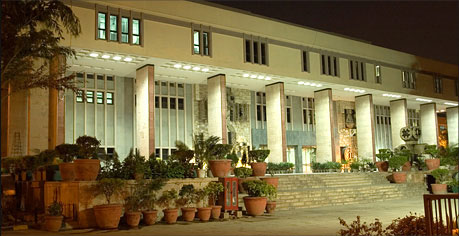Denial Of Information Under RTI Act Only If Disclosure Impedes Investigation Process: Delhi High Court

The Delhi High Court has recently observed that information under Right to Information Act, 2005 can only be denied if it is established that disclosure would impede the process of investigation.
The Single Bench comprising of Justice Jayant Nath has observed that to deny information under Section 8(1)(h) of the Right To Information Act,2005; it must be established that the information sought is one which would impede the process of investigation or apprehension or prosecution of the offenders.
In the present case, the petitioner filed an RTI Application under Rule 6 of the Right to Information Act seeking disclosure of certain information. Since the CPIO did not provide correct information regarding specific points and hid the cases registered under IPC/PC Act, the petitioner filed a first appeal before the First Appellate Authority, which failed to decide the petitioner’s appeal within a definite period. After that, the petitioner filed a second appeal before the Second Appellate Authority, which allowed the Chief Information Commission not to disclose information based on verbal submissions. The petitioner aggrieved by order of the Second Appellate Authority thus filed the present petition.
The Bench relied upon the judgment passed by the Coordinate Bench of Delhi High Court in Union of India vs. Manjit Singh Bali, 2018 SCC OnLine Del. 10394 in which it was held that,
“24. Denial of any information available with a public authority, which could assist an alleged offender from establishing his innocence or pursue his defense, may impede the course of justice. After the investigations are complete, the information as sought by the respondent can be denied under Section 8(1)(h) of the RTI Act only if the public authority apprehends that such disclosure would interfere with the course of prosecution or in apprehending the offenders. It will not be open for the public authority to deny information on the ground that such information may assist the offender in pursuing his defense (and therefore impede his prosecution). This is not the import of section 8(1)(h) of the Right to Information Act,2005.
25. It is also necessary to bear in mind that the RTI Act is a statutory expression of one of the facets of Article 19(1)(a) of the Constitution of India, and any exclusionary clause under the RTI Act must be construed keeping in view the object for providing such exclusion. Under Article 19(2) of the Constitution of India, reasonable restrictions in the exercise of rights under Article 19(1)(a) of the Constitution of India are sustainable if they are in the interest of the sovereignty and integrity of India, the security of the state, friendly relations with foreign states, public order, decency or morality, or concerning contempt of Court, defamation or incitement to an offense. The exclusion under Section 8(1)(h) of the RTI Act - information which would impede the process of investigation or apprehension or prosecution of the offenders - has to be read in conjunction with Article 19(2) of the Constitution of India. Such denial must be reasonable and in the interest of public order.”
The Bench also placed reliance on Bhagat Singh vs. Chief Information Commissioner & Ors., (2008) 100 DRJ 63 in which the Court observed that,
“13. Under Section 3 of the Act, access to information is the rule, and exemptions under Section 8, the exception. Section 8, being a restriction on this fundamental right, must therefore be to be strictly construed. It should not be interpreted in a manner as to shadow the very right itself. Under Section 8, exemption from releasing information is granted if it would impede the investigation process or the prosecution of the offenders. The mere existence of an investigation process cannot be a ground for refusal of the information; the authority withholding information must show satisfactory reasons why the release of such information would hamper the investigation process. Such reasons should be pertinent, and the opinion of the process being hampered should be reasonable and based on some material. Sans this consideration, Section 8 (1) (h) and other such provisions would become the haven for dodging demands for information.”
“Burden is on the public authority to show how a piece of information could impede the investigation when it takes recourse to section 8(1)(h) of the Right to Information Act,2005 to withhold information. The word impede means anything that has the capability of hampering or interfering with the investigation or prosecution of the offender”, the Bench observed.
While quashing the impugned order passed by the Central Information Commission, the Court observed that no attempt was made in the impugned order to show how giving information would hamper the investigation and ongoing disciplinary proceedings.
Case Title: Amit Kumar Srivastava v. Chief Information Commissioner
Law Point/ Statute Involved: Section 8(1)(h) of the Right to Information Act,2005
